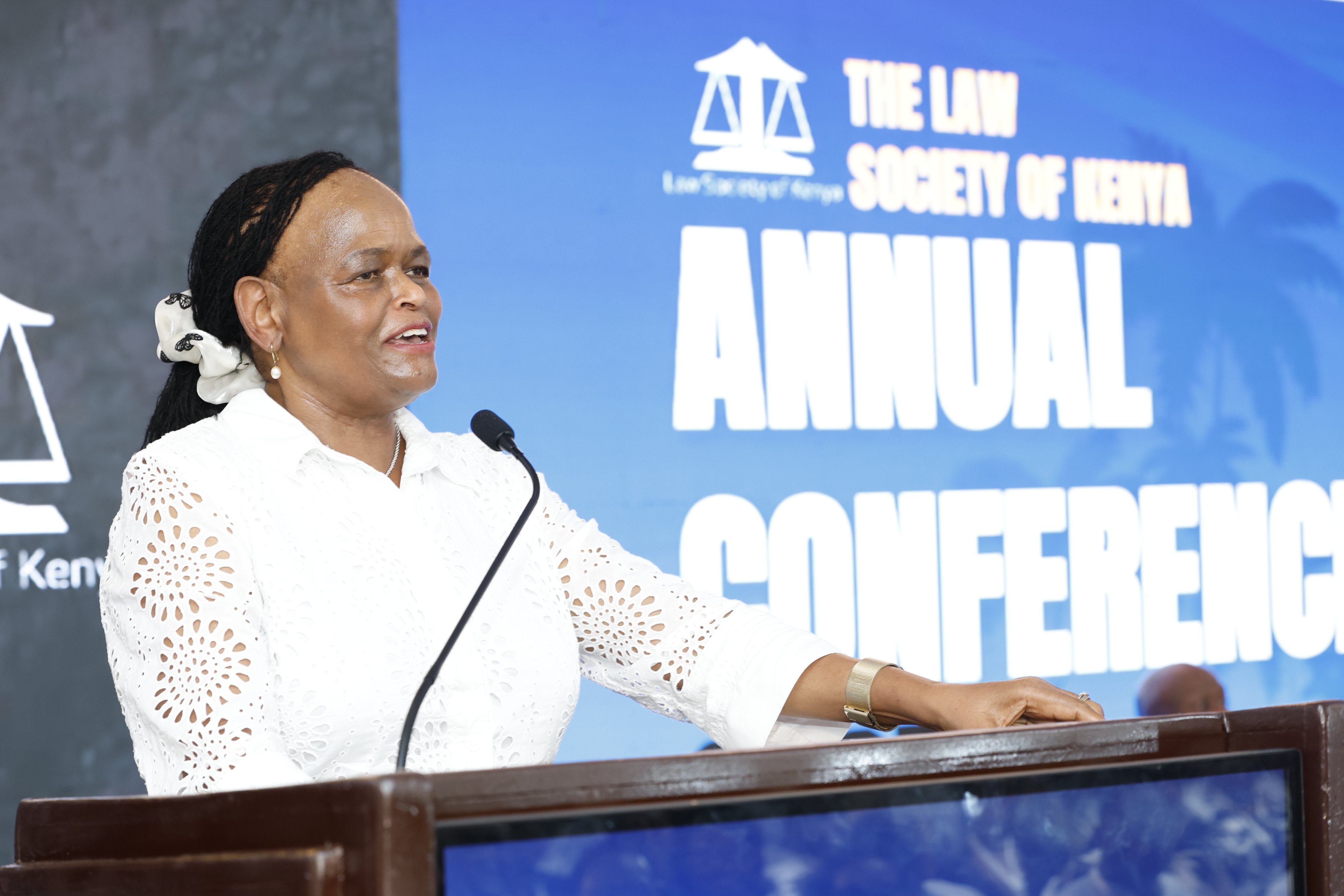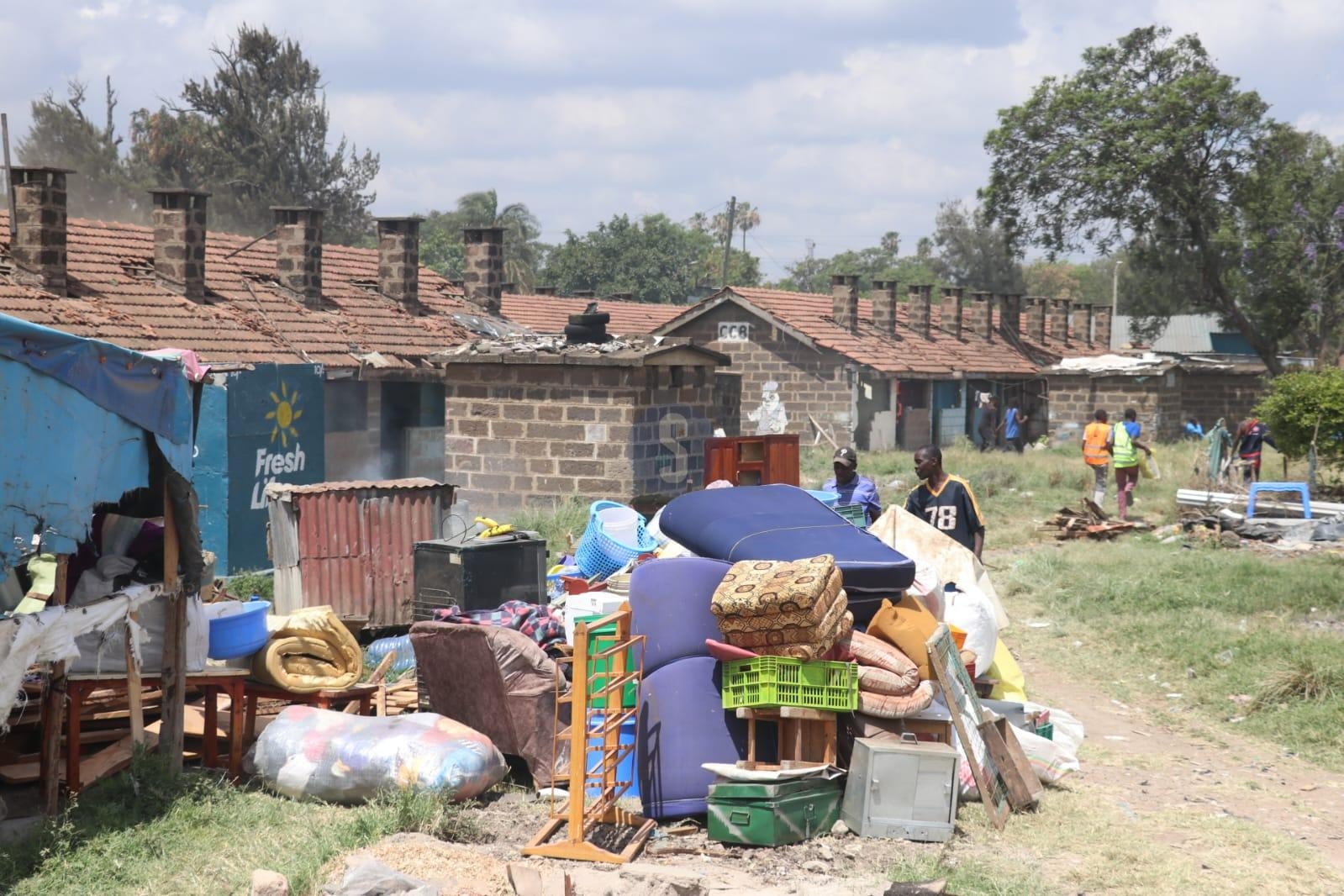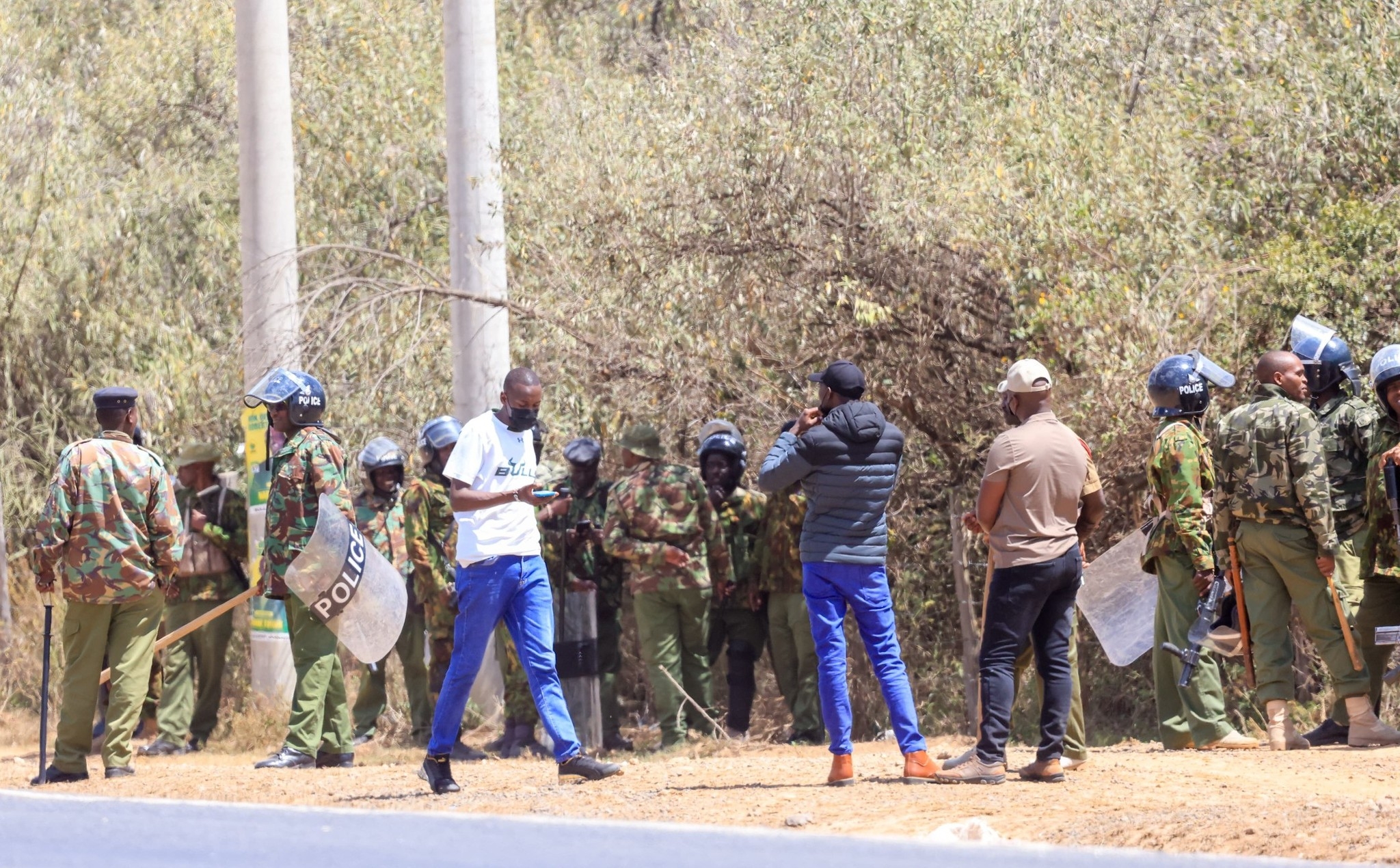
 Chief Justice Martha Koome speaks during the 2025 Annual Law Society of Kenya Conference on August 14, 2025. /JUDICIARY
Chief Justice Martha Koome speaks during the 2025 Annual Law Society of Kenya Conference on August 14, 2025. /JUDICIARY
Chief Justice Martha Koome says the High Court has issued a record number of habeas corpus orders in the past year, highlighting an unprecedented surge in missing persons cases amid rising outrage over alleged extrajudicial killings.
Habeas corpus is a court order compelling a government official to present a detained person—dead or alive—before a judge to determine if their detention is lawful.
It safeguards against unlawful imprisonment, ensuring no one is held without due process or a legitimate legal basis.
Speaking on Thursday at the 2025 Annual Law Society of Kenya Conference, Koome said the Judiciary has remained steadfast in safeguarding constitutionally guaranteed freedoms from unlawful imprisonment or confinement.
“We in the Judiciary continue to do our part to ensure that all actions that we take both in public and private comply with the law," she said.
"Indeed probably, at no time in the history of our nation has the courts granted as many orders of habeas corpus as has been done by the High Court in the recent one year.”
The CJ noted that the courts have repeatedly issued urgent orders for the production of people believed to have been abducted or forcefully disappeared over that period.
Koome said the surge in such orders reflects the scale and urgency of human-rights concerns in Kenya today.
Her remarks come at a time when the country has been grappling with growing reports of disappearances linked to security crackdowns.
The Kenya National Commission on Human Rights (KNCHR) has documented a sharp rise in enforced disappearance cases since the onset of anti-government protests sparked by the controversial Finance Bill in June 2024.
According to KNCHR’s official statistics, 74 enforced disappearances were recorded between June and November 2024, with 26 people still missing at the time of that November report.
In an update on December 26, 2024, KNCHR reported another 13 cases over a three-month period, raising the total to 82 disappearances since June 2024.
Out of these, 29 individuals remained unaccounted for as of the December update.
During the renewed anti-government protests in June and July this year, the commission reported at least 38 people died but the assessment did not find recorded cases of kidnappings.
But even then, many families have had to turn to courts after police reporting channels failed to produce answers on their missing loved ones.
"Recent youth-led protests in June 2024 and mid-2025 are a reminder of our citizens’ demand for good governance and adherence to constitutional values," Koome said.
The CJ's disclosure signals judicial awareness of the crisis, but rights advocates caution that legal orders alone cannot end enforced disappearances, unless state agencies comply fully and systemic gaps in law enforcement accountability are addressed.
Speaking at the annual conference, LSK president Faith Odhiambo said one of the pillars of the right to fair trial and rights of arrested persons is the internationally recognised and practised principle of anticipatory bail, which the state has claimed fuels corruption - an assumption Odhiambo dismissed.
"Anticipatory bail is neither a Kenyan innovation granted on whims nor does it amount to judicial endorsement of crime," she said.
"The Judiciary is a fact-finder guided by the law and evidence and not to be swayed by political sensentionalism."
Odhiambo urged the Judiciary to continue exercising its mandate with fear or favour "regardless of attacks associated with highly potent social political scene".

















